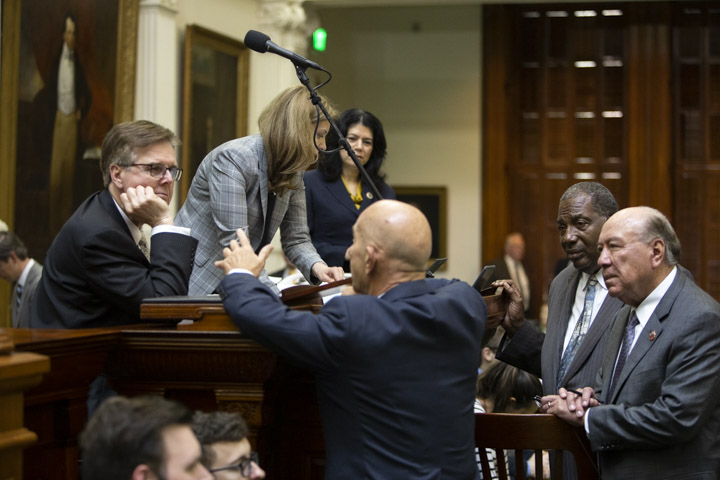Texas Lieutenant Governor Dan Patrick is defending a plan to change Senate rules to allow a bill to pass with a mere majority vote, rather than three-fifths of the votes.
Although the Texas Constitution says that the Legislature can pass a law with a simple majority vote in each chamber, the Senate’s own internal rules require 19 of 31 votes. Before 2015 the bar was even higher at two-thirds (21 votes).
The Senate can change these rules at the outset of a legislative session, and that is what the lieutenant governor has proposed to do in 2021.
This change would ensure that a Republican majority could still pass laws in the Senate in 2021 even if Democrats pick up one or more seats at the polls in November, narrowing the current Republican majority of 19 seats.
As lieutenant governor, Patrick presides over the Senate and plays a major role in setting the agenda and enforcing the chamber’s rules. If his idea garners the support of other Republican lawmakers, then the new rule is likely to take effect in the Senate chamber in January 2021, when the next legislative session begins.
But Patrick’s plan prompted backlash from five former Republican state senators, who said the rule change would make the Senate more partisan and less “collegial.”
In an op-ed in the Houston Chronicle, former Senators Cyndi Krier (San Antonio), Bill Ratliff (Mount Pleasant), David Sibley (Waco), Steve Ogden (Bryan), Bob Deuell (Greenville) and Craig Estes (Wichita Falls) said the Senate rule helped to “cool down some of the fevered legislation filed in the Senate or passed by a simple majority of the Texas House of Representatives.”
The super-majority rule, they argued, “encourages, even forces, senators to work with colleagues across the political aisle. In our experience, working in a bipartisan manner led to better legislation and made the Texas Senate a more collegial body.”
Patrick responded in a letter to the Houston Chronicle on Feb. 15: “Before 2015, Democrats had used the 21-vote requirement to block any bill they didn’t like. Founding father James Madison once said a two-thirds vote in Congress would lead to the tyranny of the minority…”
He went on to argue that the supermajority rule had led to unnecessary special sessions of the Legislature during Governor Rick Perry’s time in office, because the rules are different during special sessions. “These former senators seem to have forgotten how many special sessions we had during Perry’s tenure,” Patrick said.
Patrick continued, “The senators vote on the rules at the beginning of each legislative session and ultimately, they will decide if we adopt majority rule — a bedrock principle of democracy — in the Texas Senate. My position is clear: I do not believe an arbitrary parliamentary rule should ever stop us from moving an agenda forward that has the support of the conservative majority in Texas.”
